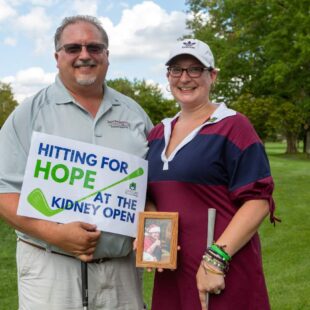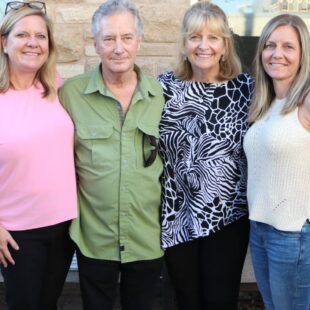Post Surgery
Many transplant social workers have said that the first year after a transplant can be very difficult for patients and families.
Post Surgery – One year
Transplant does not end after surgery. Many times, people feel that life will resume as it was after surgery and recovery.
It is not always possible to jump back into your previous routine and lifestyle so quickly. For some people, one year after transplant can be the most difficult. Trying to get your life back while the patient is continually monitored by doctors for rejection and adjusting to a new life with a new organ can be tough. Each organ is different, and recovery times and needs are different for each patient. It is important to always talk to the transplant team about concerns or questions and to think about what it could be like for the patient.
One family stated they were in and out of the hospital more for the year post-transplant than any other time because of so many rejection episodes. Every patient and transplant is different. Some patients experience many rejection episodes and need to go back and forth to the hospital, which is not uncommon, while other patients may never experience a rejection episode. If the patient feels he or she is having symptoms of rejection, it is important to follow the discharge directions from the transplant team and contact them as soon as possible.
Because recovery times can differ from one transplant to the next, it is not easy to identify a set recovery time. For lung transplants, a patient may be required to attend up to three appointments per week post-transplant for up to three months, whereas for a kidney transplant, only two appointments for six weeks may be required.
Life post-transplant can be more difficult if a patient does not reside in the transplant hospital area. Similarly, if the caregiver needs to return to his or her life or work, he or she also may have a tough time arranging the patient’s transportation to and from the hospital for appointments.
It may seem stressful for a transplant caregiver one year post-transplant because there may be a lot of pressure to keep the patient healthy with his or her new organ. Some things that are important to consider after transplant are monitoring for rejection, getting used to taking new medications, nutrition, getting back to doing things you and the patient love, and keeping a positive outlook. Talk to your transplant team to find out the best way to monitor the patient post-transplant, as every patient is different.
Depression and other mental health disorders are common in patients and caregivers post-transplant because they may not be able to jump back into their regular routines. Caregiver and family support is very effective in assisting with emotional and mental issues post-transplant, so the caregiver should always plan for continued contact with the medical team as needed.
As a caregiver, it can be an emotional rollercoaster trying to monitor the patient’s health after a transplant while living your own life, caring for other family members, or working. The section about compliance may provide some assistance when it comes to getting the patient to care for their organ and prevent rejection. Remember, your transplant team is there to help with concerns and issues. See [Emotional Health for Transplant Caregivers] for additional resources.
Post Transplant – Until the Rest of our Lives
The patient will always have his or her transplant doctors and team to contact with questions or concerns at any point down the line. Transplant is lifelong, and although stable patients’ and families’ contact with the transplant team may lessen, the transplant team should always be there for the patient and family as long as needed.
At this point in the transplant journey, the patient may be stable enough to have very little contact with the transplant team. Therefore, it’s time to get back to your pre-transplant routine if you and the patient have not done so already. It is recommended to go back to doing things you and your loved ones once enjoyed. One important reason a person would want to receive a transplant would be to extend their life so they can continue to doing what they love.
Many caregivers have a difficult time letting their caregiver role go because it has been an identity for quite some time. If there is no need for you to be a caregiver any longer, then it is important to move on to your next role and place the caregiver role on the back burner. If you enjoyed being a mom, a worker, or soccer coach, then take on those roles again and make them an important priority. The same can be said for the patient who may no longer be the patient. This stage can be difficult for both parties because many people have trouble returning to work or spending time with friends without constantly worrying about the transplant patient.
How can a caregiver stop being a caregiver? It may be helpful to first identify what you enjoy in life. Do you love being a mother? Do you love your job? Did you previously spend every Thursday with your friends playing golf or going to the movies? Try to do those enjoyable things as often as possible without thinking about transplant. Encourage the patient to do this as well.
Though you are being encouraged to let the caregiver role go, it does not mean you and the patient no longer have transplant responsibilities. Transplant is a lifelong process, so you and the patient may need to take on the patient/caregiver role again at some point down the line. Additionally, there are some transplant pieces the patient cannot put on the back burner, such as good nutrition, exercise, and medication compliance.
Another piece of life post-transplant is that you and the patient continue to live a healthy lifestyle. The patient will need to keep his or her new organ healthy, and as a caregiver, you may play a large role in encouraging this. Without good health, the patient’s body could reject the organ, placing the patient back where they were previously: needing a transplant. The patient’s transplant team, including his or her dietician, will be able to give advice on good nutrition and exercise for the patient. Similarly, it is important for you to have good nutrition and exercise practices to keep yourself healthy – this has even been shown to decrease depression. Please see the Physical Health for Transplant Caregivers and Emotional Health for Transplant Caregivers sections for more information.
Don’t forget to live your life to the fullest now that you and the patient have a second chance at life. The transplant is giving you and your family the opportunity to appreciate life and everything it has to offer.







